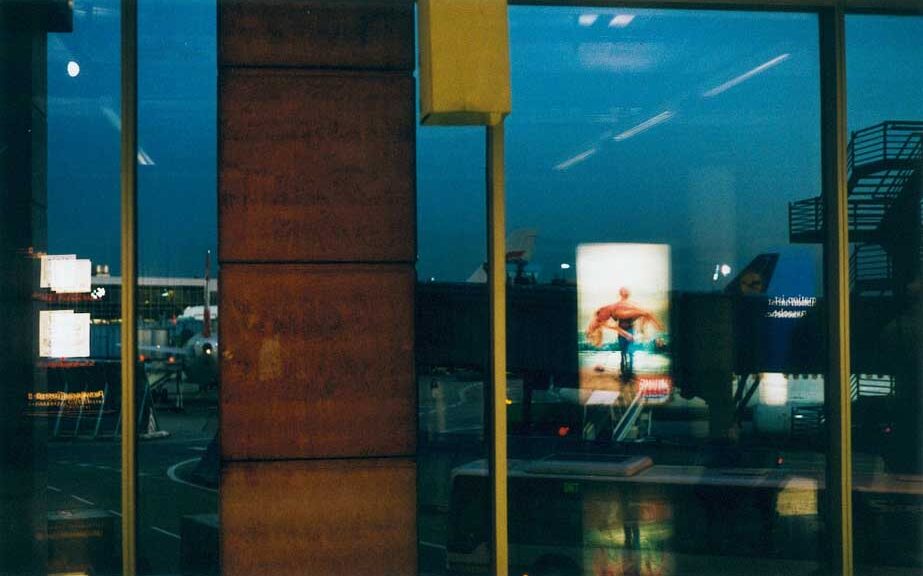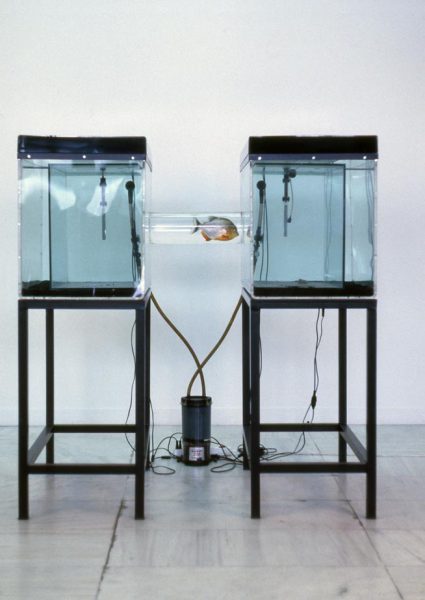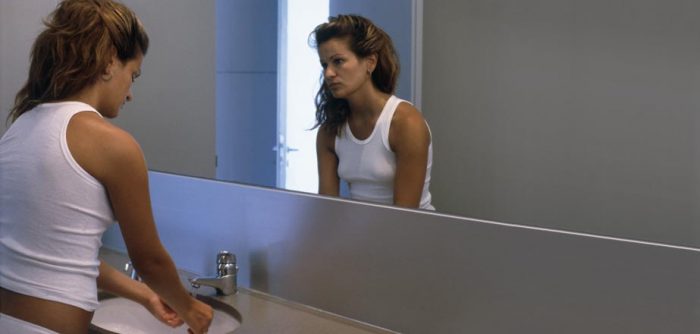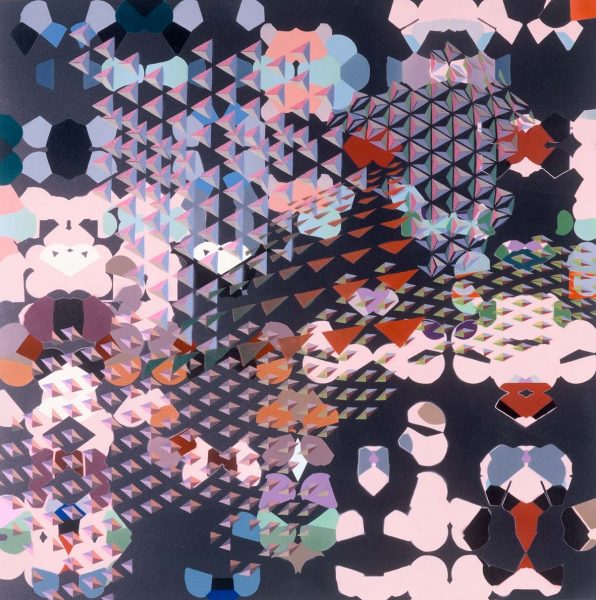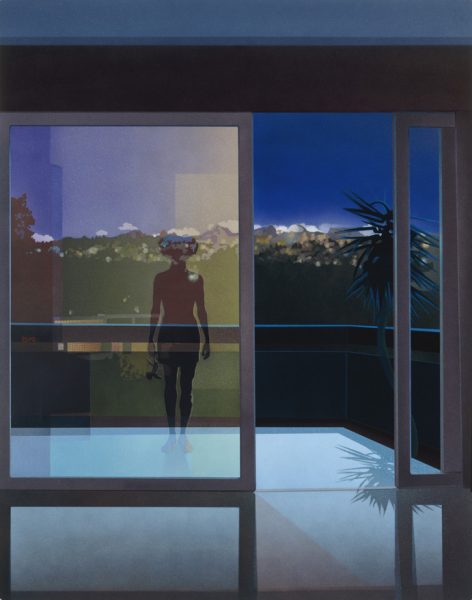WALKTHROUGH
Episode 1. An Ideal for Living
At the sound of the engines you strap the seat belt on tight and settle down anticipating take-off. The flight is brief, a routine landing, you get ready and wait in the aisle, glancing around at the others who are travelling alone, they stare back. The passengers begin to file out, the stewards bid you farewell and wish you a pleasant stay, you thank them in passing. Walking through corridors to the various exits you glance through a series of windows. The weather is dull, not unlike central Europe in mid-summer.
Your transit flight not due for hours, you drift round the shops, wondering what to do, looking for a clue. Gazing out the windows at the heavy grey sky you predict rain. You’re dressed for the 32 degrees you left back in Athens. But milling around the airport is not an option.
You find the bus that takes you to the city air terminal. Pastoral landscape succeeds industrial landscape then the bus turns into a station. You take an escalator down to the subway system. A large crowd heads your way with a purpose to sweep you along. You resist, bumping into confident members of the swarm as it flows past. When the crowd subsides you find yourself at a large junction with several options. Now you’re aware of the dispersed swarm as multiple singularities. Unique identities. Focal points tracing their co-ordinates in defined space. Some of them walk in the same direction, others transverse your path on a different trajectory, some rush straight at you as though you’re in their flight path, and others seem lost and aimless. You could be any one of them. You look at some of their faces and imagine what that would be like. You wouldn’t know the difference. You buzz like white noise. An escalator conveys you upward into the diffuse light at the surface.
It’s Monday the museums are closed, glancing at a map you set your bearings. Play it by ear, every time you reach a cross-roads select the most interesting direction, make yourself up as you go along. You’re on a wide avenue, it leads across a wide bridge through a park to the old district. You feel the first drops of drizzle on your shoulders. You notice that you’re dressed in stark contrast to the people on the street. A nagging thought recurs: you’re a stranger, but you have a growing need not to be different anymore.
You ignore the chill but the rain soon alters your plans and you cross the square to the entrance of the cathedral. A service is due to begin and tourists are forbidden entry. When asked if you’re attending the service you lie and the door is held open. You walk into the half-light, the droplets on your skin reflect the candle flames. You seat yourself and trace the baroque designs along the walls and down the pillars to a gate of intricate metallic spirals.
Two things swirl in your mind, the one is wanting to share again. You wonder if you really need it. This sharing used to disgust you. So now it’s about not wanting to be alone anymore. Too much trouble every time. What was the other thought? You dismiss it, it will come back to you.
Wishing for an event – something to disrupt things, they always take their normal course. No surprises. Yes, it comes back, you think, you realised: The desire to provoke an accident. The possibilities are endless. What is desire after all than an encounter with the impossible? A hunger to live, a thousand lives, to experience a thousand existences.
In reality, you aren’t in a position to have any one of several different futures, only to predict them correctly. Anyway a life is made up of small and trivial things as well.
The sun makes an appearance through the stained glass windows. You get up and walk out, the rain has stopped, the streets are empty. You walk until you reach the riverbank and then turn back. You pass by a souvenir shop and buy two postcards of the Ferris wheel. Night falls and the wet tiles reflect the street lamps.
Waiting for the bus back to the airport you have a martini in a dark dingy bar. The bus is warm and comforting, tired now, you curl up in your seat and look out into the darkness. To leave is but to go somewhere else. To escape from one illusion just to fall into the next.
Episode 2. The Passenger
At the airport you check the information screens, your flight is delayed for two hours. Looking around the departure lounge you see shops to your left, the waiting lounges ahead, the illuminated airfield through the glass to your right. You wander off to the right a like sleepwalker. Estrangement is more acute when you’re alone in an airport with just your hand luggage. You approach the phone booths set along the immense glass panels. You could call someone to confirm your existence. A young businessman in a suit is talking on one of the phones, you stand within earshot. Wrapped up in the moment, he’s oblivious to his surroundings. A city dweller, he feels alone in public. He speaks English with a slight Italian accent. A plea for a meeting, a small confession. He tries to establish contact, closeness, to keep the coherence, but he is not encouraged. His voice is warm, it pleads, but strangely the words are cold, indifferent. He hangs up and you’re both stranded.
You are very sleepy boarding the evening flight but you stay awake for dinner reading Orlando. Flying over the Mediterranean coast you can make out the lights of the cafés and the yachts in the marinas. The screen in front of you tells you that you’re flying at an altitude of 923 km and the external temperature is 52 degrees below zero. You snuggle up with a blanket but you will keep waking up in a clinging position.
In the morning you wake up to a bustle of activity while breakfast is served. Looking out you can see fluffy white clouds speed by on the currents, sweeping their shadows across the yellow veld. You wash up in the lavatory. Flying low for landing you see the houses on dry lawns, each with its own pool, all shapes, all hues of blue and turquoise. Each with its cleaner like a white boa floating languidly in the water. Light refraction exaggerates and enhances these little holes like jewels set firmly in the mustard ground.
Inside the airport the corridors are studded with police and security guards. You are welcomed by a million smells. They don’t remind you of images, but of childhood, protection, stability, order. You notice that you make the guards restless as you walk by and they talk into their radios. Another breath revives a memory of driving home with mom and dad after a movie and pretending to be asleep in the back seat just so that you will be carried up from the garage and put straight into bed.
You wait for your luggage. Two guards stand at a small distance. This attracts the attention of the other passengers because it’s obvious that the guards are staring at you. Dumping your luggage onto a trolley you wheel it over to the passport control queue. You get a whiff of alienation, intimidation, but it is warm. Approaching the counter you see three guards waiting on the other side, they are looking back at you. You hand your passport over to the clerk, the guards inspect it. You answer questions on the purpose and length of your journey with typical answers. The guards leave, the clerk hands your passport back and wishes you a pleasant stay.
You realise you’ve been mistaken for someone else, your mind lingers on a scenario. You quickly check your luggage in for the connection flight, it doesn’t board for another hour. Now you look for the sculpture, anticipating the unbroken golden coils rotating imperceptibly on the block of black marble. It’s gone. You ask at information, he doesn’t know, he’s too young to remember. You walk outside and stand in the sun.
Episode 3. Life in Transit
Feeling full of caramel popcorn you are sitting in the Leopard Lounge with a glass of guava juice. From all you’ve heard of the changes, you are apprehensive, but you do not feel threatened. Maybe this is what home is supposed to be like. The light comes from hanging lamps and appliqués of illuminated ostrich eggs. You consider other separation motifs. Merger after division always follows a common pattern. You pull out the Ferris wheel postcard writing all the way around the white border, on the picture side as well.
You drop in at the post-office and then look for the boarding gates, a sign says: No Unlicensed Firearms Beyond This Point. You stand in the queue behind an older woman, she looks around anxiously, she’s not sure if she’s waiting in the right spot.
This is a smaller aeroplane, you’re seated next to a journalist. A quiet man in his forties, he talks to you throughout the flight. After take-off the plane makes a 180 degree turn setting a southern course. From horizon to horizon the land is completely flat. The surface is etched in rectangles and circles. The journalist explains the circular ploughing method. The tan coloured ground gradually begins to undulate and then wrinkles up and folds into mountains where rivulets run into rivers. The sandy smooth swellings turn into craggy rock with sharp peaks. Tufts of green trees begin to appear and pretty soon the jungle takes over. The plane swerves round for landing. A white strip of beach rises in a diagonal line across the oval window.
You discern K’s familiar smiling features in the waiting crowd, he gives you a homecoming welcome. On the way to the car he asks you how you feel, you’re taken off guard by this question, wondering what makes people ask such a thing. You make a swift internal enquiry: you are still numb – from being out of context. Not a good feeling, but better than being in context.
Driving on the highway to the city he talks. You look out the window at the hills covered in banana trees. You’re happily disengaged, as though this is someone else’s life you are living. It’s not happening to you. Like sitting in the back row, watching a film, but if you get bored you can’t leave. Another observer is required to make it real.
You don’t know if your reactions are appropriate. You know he expects to hear something from you, but you don’t feel you must comply, you’re waiting to see what happens next. The subtle overtones of what he’s saying don’t have an immediate effect. It is the first time you hear a different telling. She’d recounted the incident so many times, filling in the gaps of your own memory. The repetition a dissection and perpetual reassemblage of parts. But never in exactly the same way. Her recollection and your reconstruction now completely indiscernible. The memory of the telling now clearer than the memory itself. Almost replacing it. Your past is no more knowable than a stranger’s. And even granted existence, it is misleading.
You get to the house, have a shower and unpack. From the veranda you watch the sun set. A tribe of monkeys swings across the lawn from trees to telephone wires, a pod of dolphins swims along the surf in leaps and dives. You have dinner on the veranda as the humidity covers everything in moisture.
In the morning you wake to find yourself back here, it seems you had left and been elsewhere, to a future or another place and waking was like returning suddenly to a different place and time. But you don’t know where you were or how long you were away.
All through the day these events seem real to you. To maintain coherence you have to construct an appropriate self-narrative, moving in a specified way within the events. You can elaborate, fulfill and conclude episodes in the developing narrative with particular moves in the game.
Soundtrack
Serge Gainsbourg: Sex Shop
KLF: What Time is Love
Archive: Nothing Else
KAA Antilope: Life in Transit
Michele Legrand: Windmills of Your Mind
Anton Kara: Harry Lime Theme
Bjork: Bachelorette
This Mortal Coil: Song to the Siren
Julee Cruise: She Would Die For Love
KLF: Madrugada Eterna
APB: Eclipse
Franz Schubert: Trio in E Flat
Madrugada: Sirens
Barbara Streisand: Woman in Love
Clubskills: Butterflies
Hooverphonic: Every Time We Live Together
Anne Clark: Elegy for a Lost Summer
APB: Mourn
Novak: Rapunzel
SPK: Necropolis
Sophia Kosmaoglou WALKTHROUGH (2001) Originally published in The Breeder, Vol. 1, Athens, June 2001
